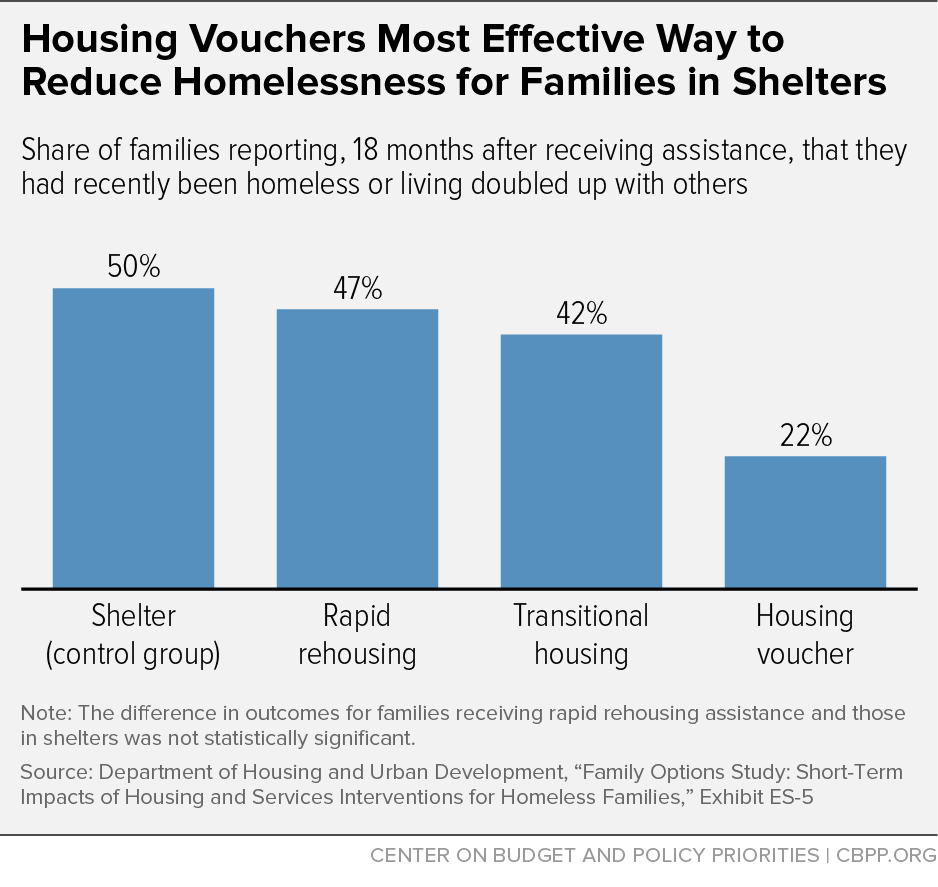BEYOND THE NUMBERS
Housing Choice Vouchers are the most effective tool to help homeless families with children find and keep stable housing, a major new study from the Department of Housing and Urban Development concludes. These findings should spur Congress to fund more vouchers for homeless families, as the President has proposed, by restoring the 67,000 vouchers cut due to sequestration and targeting a large share of them to homeless families.
Called the Family Options Study, this is the first rigorous, large-scale evaluation of alternative strategies to reduce homelessness among families with children. Homelessness imposes serious long-term costs on children, harming both their academic performance and their mental and physical health.
The 12-city study randomly assigned families living in homeless shelters to receive one of several types of assistance, including housing vouchers. The report, detailing the impacts for families 18 months later, shows that vouchers greatly improved family well-being. Compared to families in homeless shelters that received no extra help under the study, families given vouchers were:
- 56 percent less likely to experience another episode of homelessness;
- 55 percent less likely to report incidents of domestic violence; and
- 42 percent less likely to have their children placed in foster care or temporarily housed with other family members.
Families with vouchers also had 16 percent fewer absences from school or child care for their children.
The other forms of assistance tested, community-based rapid re-housing and project-based transitional housing, had few significant effects on homelessness and only scattered effects on other outcomes. (See chart.)
The study also found that vouchers are a cost-effective way to help homeless families get stable housing. The voucher assistance that families received was only slightly more costly than rapid re-housing assistance and significantly less expensive than the assistance given to families in transitional housing or emergency shelters. The costly and intensive services provided through transitional housing and shelter care — such as mental health treatment, help finding employment, and parenting classes — had relatively little impact on housing stability or family well-being.
These results “provide support for the view that, for most families, homelessness is a housing affordability problem that can be remedied with permanent housing subsidies without specialized homeless-specific psychosocial services,” the study notes. Thus, the study reinforces other research showing that housing vouchers provide the most direct and effective way to address family homelessness.

